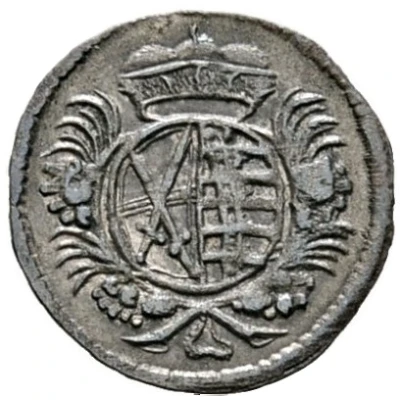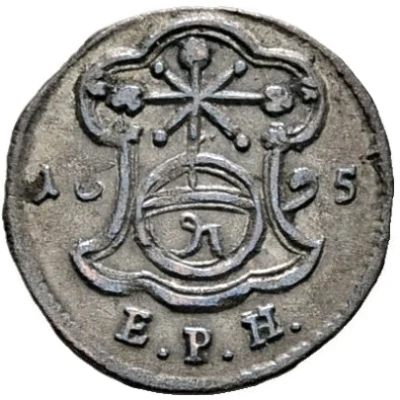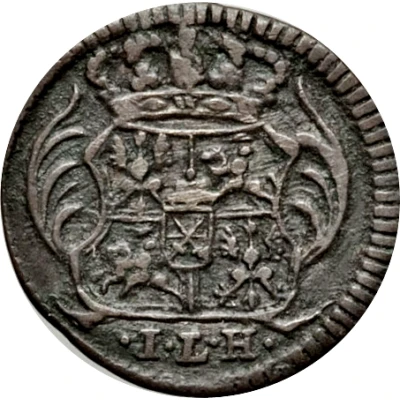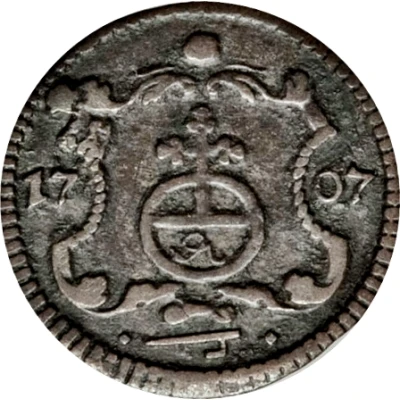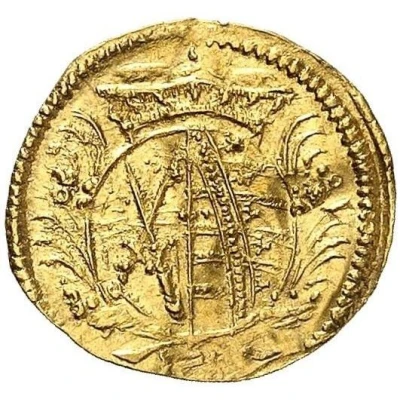
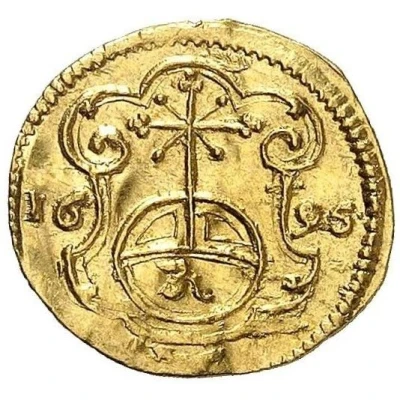

© Fritz Rudolf Künker GmbH & Co. KG, Osnabrück and Lübke & Wiedemann KG, Leonberg
1 Pfennig - Frederick August I Gold pattern strike
1695 year| Gold (.986) | 0.45 g | - |
| Issuer | Electorate of Saxony (Albertinian Line) (German States) |
|---|---|
| Issuer | Electorate of Saxony (Albertinian Line) (German States) |
| Prince elector | Frederick Augustus I (Friedrich August I) (1694-1733) |
| Prince elector | Frederick Augustus I (Friedrich August I) (1694-1733) |
| Type | Pattern |
| Type | Pattern |
| Year | 1695 |
| Year | 1695 |
| Value | 1 Pfennig (1⁄288) |
| Value | 1 Pfennig (1⁄288) |
| Currency | Thaler (1493-1805) |
| Currency | Thaler (1493-1805) |
| Composition | Gold (.986) |
| Composition | Gold (.986) |
| Weight | 0.45 g |
| Weight | 0.45 g |
| Shape | Round |
| Shape | Round |
| Technique | Milled |
| Technique | Milled |
| Orientation | Medal alignment ↑↑ |
| Orientation | Medal alignment ↑↑ |
| Demonetized | Yes |
| Demonetized | Yes |
| Updated | 2024-10-05 |
| Numista | N#313064 |
|---|---|
| Rarity index | 97% |
Reverse
Orb with denomination, date separated to sides
Script: Latin
Lettering:
1695
₰
Interesting fact
One interesting fact about the Pattern 1 Pfennig - Frederick August I (Gold pattern strike) 1695 from Electorate of Saxony (Albertinian Line) (German States) is that it was minted during a time of great economic and political change in Europe. The coin was issued during the reign of Frederick August I, who was the Elector of Saxony from 1694 to 1733. During his reign, the Electorate of Saxony was facing significant economic challenges, including a large national debt and a decline in the value of the local currency. In response, Frederick August I introduced a new currency, the "Gold-Pfennig," which was intended to stabilize the economy and promote trade. The Pattern 1 Pfennig was one of the coins minted as part of this new currency system, and it features a unique gold composition and design that sets it apart from other coins of the time. Despite the challenges faced by the Electorate of Saxony during this period, the Pattern 1 Pfennig remains a valuable and sought-after collector's item among numismatists today.
